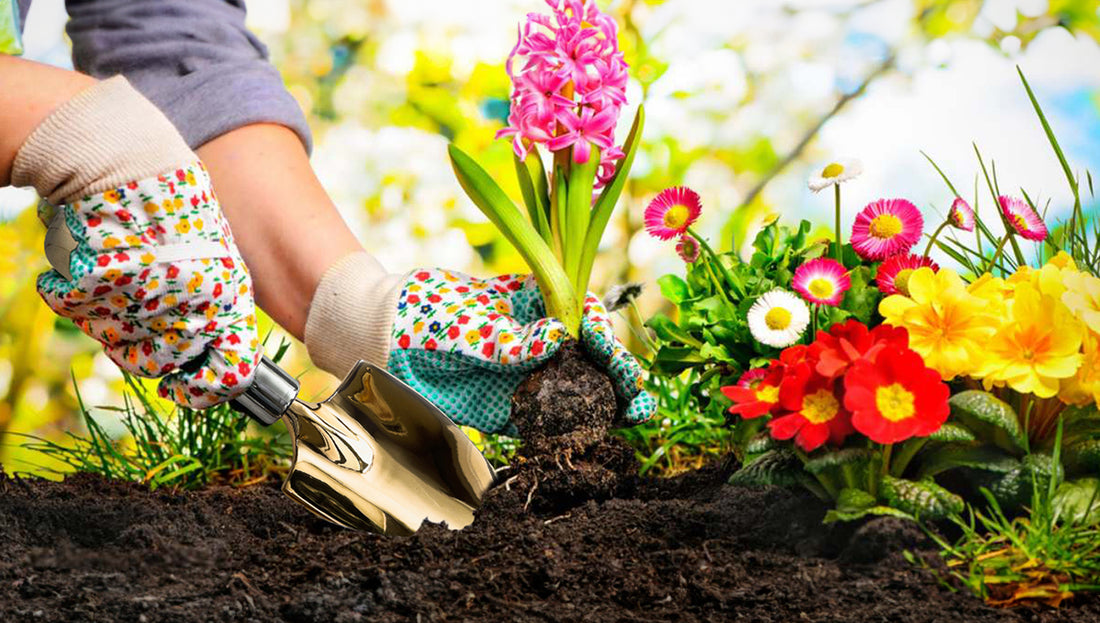The term electroculture gardening has been gaining popularity on social media. Many gardening enthusiasts are curious about this unique method and its potential benefits.
Well, using electrical currents for plant growth is not a new concept.
It has been explored for decades with varying degrees of success. The basic idea is to use conductive materials, like metal rods or wires, in the soil around plants. This method is believed to capture atmospheric electricity & channel it to the plants, promoting better growth and health.
An experiment was conducted 100+ years ago & it showed that electrified seeds germinated faster & produced better crops. By burying copper and zinc plates in the soil, it was found that crops like potatoes and carrots grew much larger. Another approach used a network of wires above the plants, which accelerated the growth and ripening of barley. In fact, growth and the ripening of barley were accelerated by 12 days.
What is Electroculture?
Electroculture is a gardening method that helps plants grow better by using electrical currents. It works by putting metal rods or wires in the soil around the plants. These materials act like antennas, capturing electricity from the atmosphere and directing it toward the plants. This technique is believed to boost plant growth and improve their health.
Does Electroculture Gardening Work?
The exact workings of Electroculture Gardening are still being studied. However, many gardeners, especially on social media, are already noticing certain benefits that include: larger crops and better yields.
Using tools made from copper, brass, or bronze in farming is better for the soil than using iron tools. These tools help produce high-quality soil and make the farmer's job easier. Additionally, they don't alter the natural magnetism of the soil.
Potential Benefits of Electroculture Gardening
1. Improved plant growth and yield
Applying low-voltage electrical currents to plants can significantly boost their growth and yield. This method stimulates the plants, encouraging cell division and elongation. As a result, the plants become larger and more robust, leading to higher crop yields.
2. Enhanced nutrient absorption and plant metabolism
Electroculture has the potential to improve how plants take in nutrients, facilitate photosynthesis, and optimize overall plant metabolic processes, potentially leading to increased nutritional value in crops.
3. Reduced requirement for chemical fertilizers:
Electroculture gardening diminishes the necessity for chemical fertilizers by enhancing nutrient absorption in plants, thereby reducing the reliance on these substances for sustainable growth.
4. Simple and economical to set up:
Electroculture process involves affordable materials such as copper wires and electrodes, making it accessible to the majority of gardeners.
5. Reduced irrigation needs:
Some studies have shown that using electrical stimulation in electroculture can help plants absorb and transport water better. This means your plants can use water more efficiently, so you won't need to water them as often.
Common Electroculture Techniques
Aerial Antenna Systems
This technique involves suspending a network of wires above crops to capture atmospheric electricity. Elevated "capacitors" are often included to store the collected energy. Using the natural electricity from the air provides an additional energy source for your plants.
Magnetic Treatment
This method involves subjecting seeds or water to static magnetic fields prior to planting or irrigation. This treatment can improve germination, boost growth, and increase overall plant vitality, providing your plants with a robust start and healthier growth potential.
Soil Electrodes
In this method the farmers/gardeners place metal rods into the soil, producing currents of low-voltage. These currents help plants absorb nutrients more efficiently and improve soil biology, leading to healthier plants and more productive soil.
Wrap up
Although further research is necessary to completely comprehend how electroculture works, current evidence indicates it could become a beneficial technique for both farmers and gardeners.
Given its low cost, you can experiment with electroculture on a smaller scale to see if it works for you. Additionally, you may consider using copper gardening tools to gain similar benefits.
Happy Gardening!

